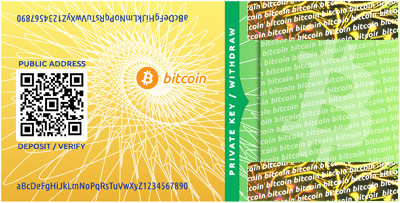Could Recent Attacks Boost Paper Wallets?
By Guest Author
Mainstream Bitcoin wallets have gained trust among consumers in recent years, as was inevitably going to happen with the continued rise of Bitcoin. The more people use cryptocurrency, the more they’ll look for secure storage and transaction options, and that means reliable wallets are bound to get more attention. However, a recent software attack on a major wallet service has the potential to shake some consumers’ faith in digital wallets altogether.
Specifically, a DDoS attack targeted BitGo and other wallet services, prompting BitGo to notify users of the problem via social media. While it’s encouraging to see the company reach out so quickly and willingly to remain open about the problem, the attack itself is somewhat worrisome. The report reiterated the need for users to move funds to wallets under their full control, rather than relying on third-party security. It was also acknowledged that those who still seek to make wallet transactions via BitGo or other affected services may experience delays while the attack is sorted out. In the end, however, it’s unlikely that many users will experience significant issues.
Nevertheless, the attack begs the question of whether some Bitcoin users might be more comfortable switching to paper wallets. One overview of Bitcoin rightly stated that, aside from security, control and validation are the most important considerations. And for some, that means taking as hands-on an approach as possible to managing Bitcoin. This means trusting a hardware or paper wallet rather than a software option. Hardware and paper wallets can be lost or stolen physically, but some consumers would rather assume that risk than the random possibility of a software attack compromising their funds or making their wallets temporarily inaccessible.
Right now, the majority of cryptocurrency users still trust software wallets because they’re simply more convenient and, in the long run, are considered to be the most secure options. However, it’s also worth considering that when given a choice, many still prefer tangible, physical tools than digital counterparts. For instance, in another category entirely, consider that Americans still prefer to read on paper as opposed to screens; or that a vast majority of citizens prefer paper bills to digital ones. Neither of these arguments relates directly to Bitcoin, of course, but they do make a point about how people view the digitization of everyday practices.
It wouldn’t be completely surprising if people’s preference for tangible tools over digital ones, combined with concerns like those resulting from the recent attack on BitGo, actually do lead more to consider paper and hardware wallet options in the near future. Either way, questions of security and convenience are clearly still shaping the developing Bitcoin wallet market.

